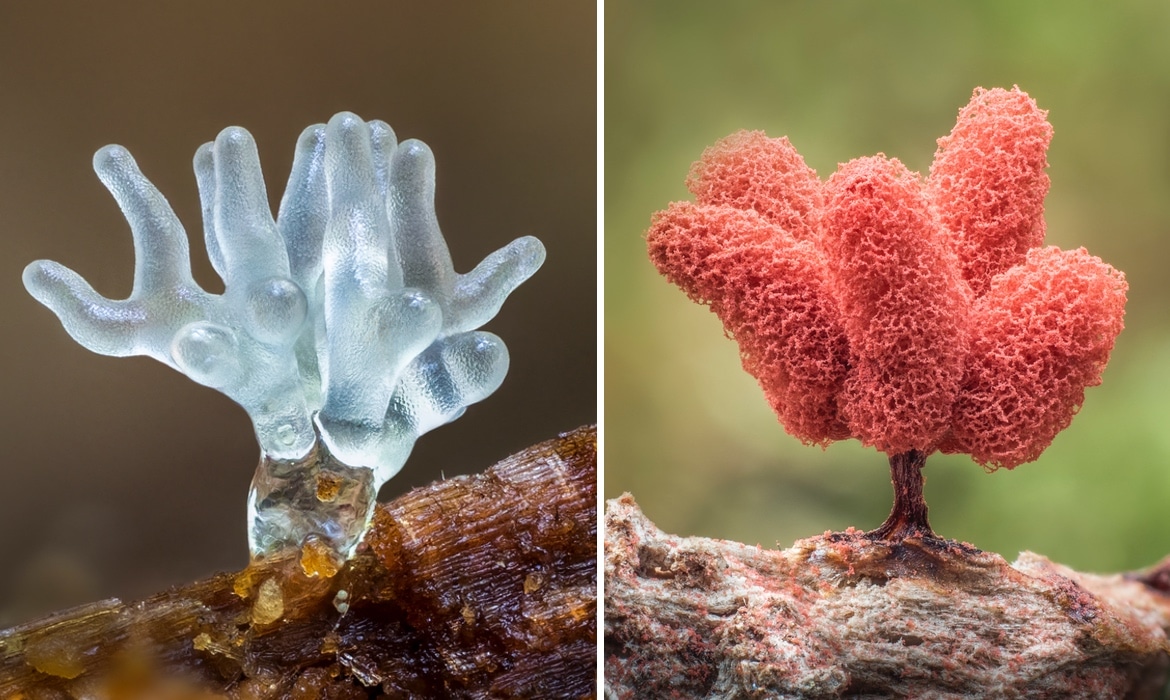
Over 900 species can be identified as slime mold. Formerly thought of as fungi, these small organisms help break down dead vegetation. With so many species, there is a rich diversity to slime mold and this is what first captured the attention of photographer Barry Webb. He’d already been taking photographs of fungi for many years when slime mold caught his attention two years ago. Since then, he hasn’t turned back.
Through his macro photography, he brings us into the world of these fascinating organisms. “The incredible diversity of form and color of slime molds keeps me obsessively searching for new species to photograph,” Webb tells My Modern Met. And his photography allows the public to see just how much variety there really is. From colorful spheres to translucent amorphous shapes, the slime molds that Webb captures run the gamut.
Feeding on bacteria, yeast, and fungi, slime molds are organisms that have long fascinated scientists as well as creatives. Each single-cell amoeba is amazingly efficient at finding food and can form large masses in order to engulf vegetation. They produce spores, which get picked up by the wind or animals and this allows them to start life anew.
While most people walk through life without noticing slime mold, Webb’s photos prove that they certainly deserve our attention. One look and the next time you wander through the forest or are working in the yard, you’ll be scanning for these spectacular alien-like organisms.
If you want to see even more of Webb’s slime mold photography, be sure to follow his Instagram, where he often posts photos of his latest finds. Print requests can also be made via the contact form on his website.
Photographer Barry Webb specializes in macro images of slime mold.
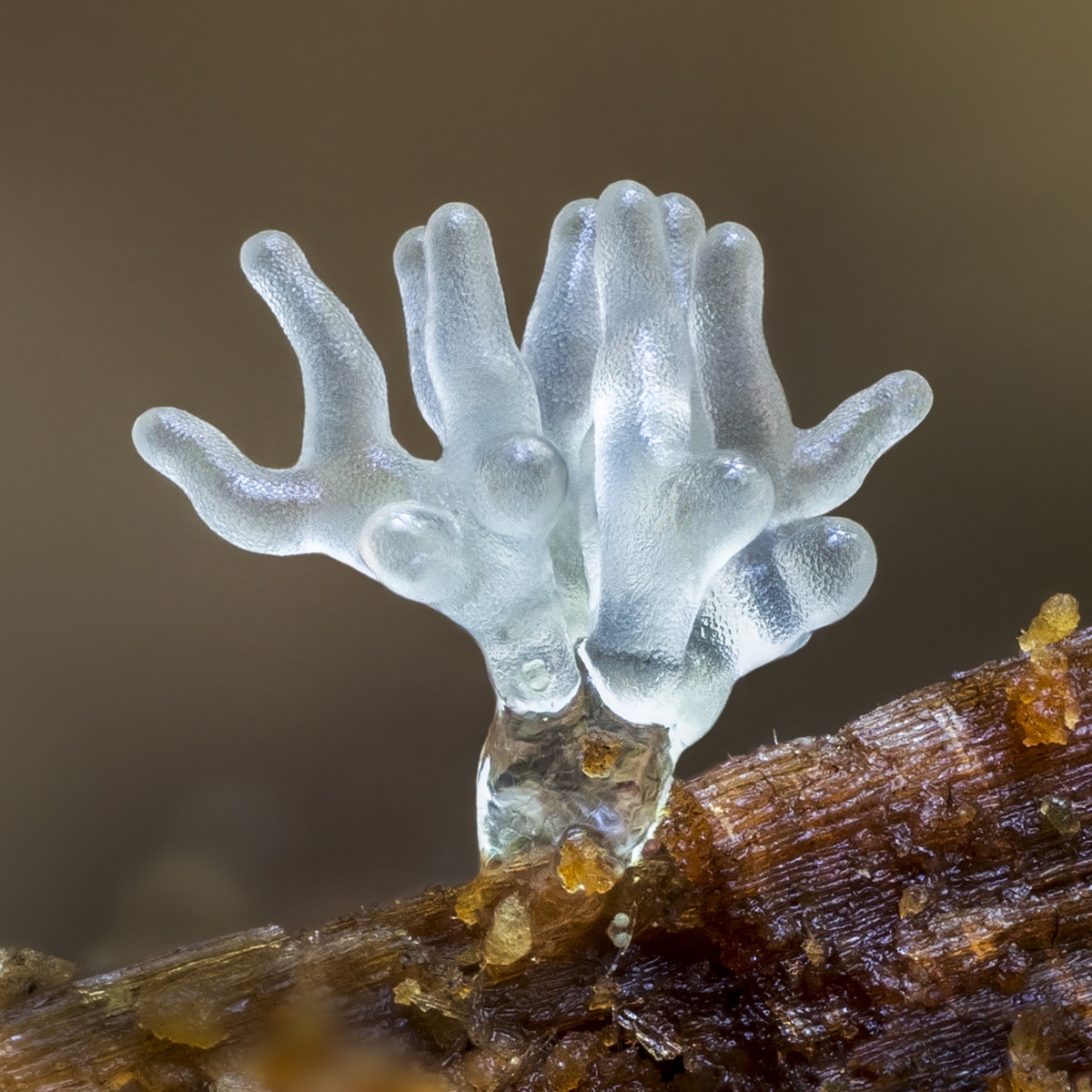
Certaiomyxa fruticulosa
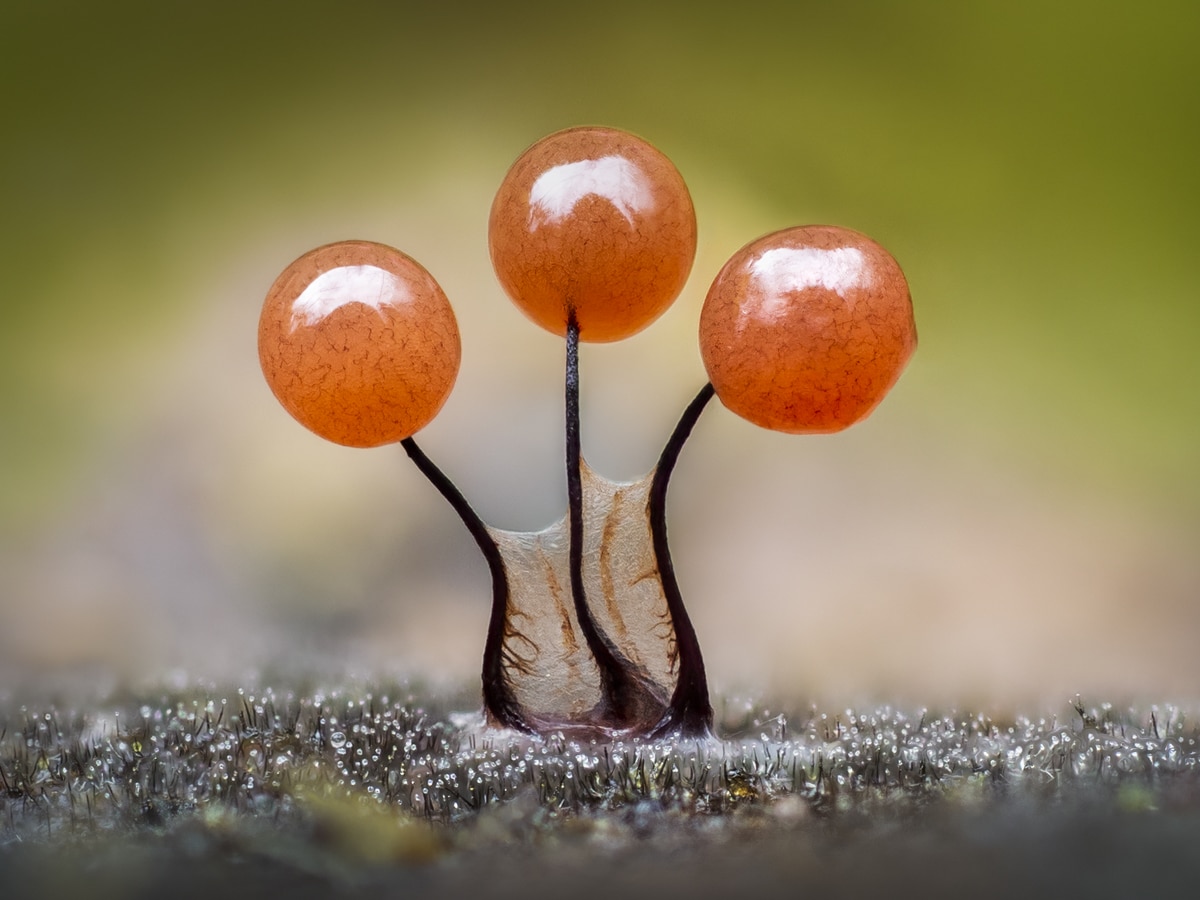
Comatricha
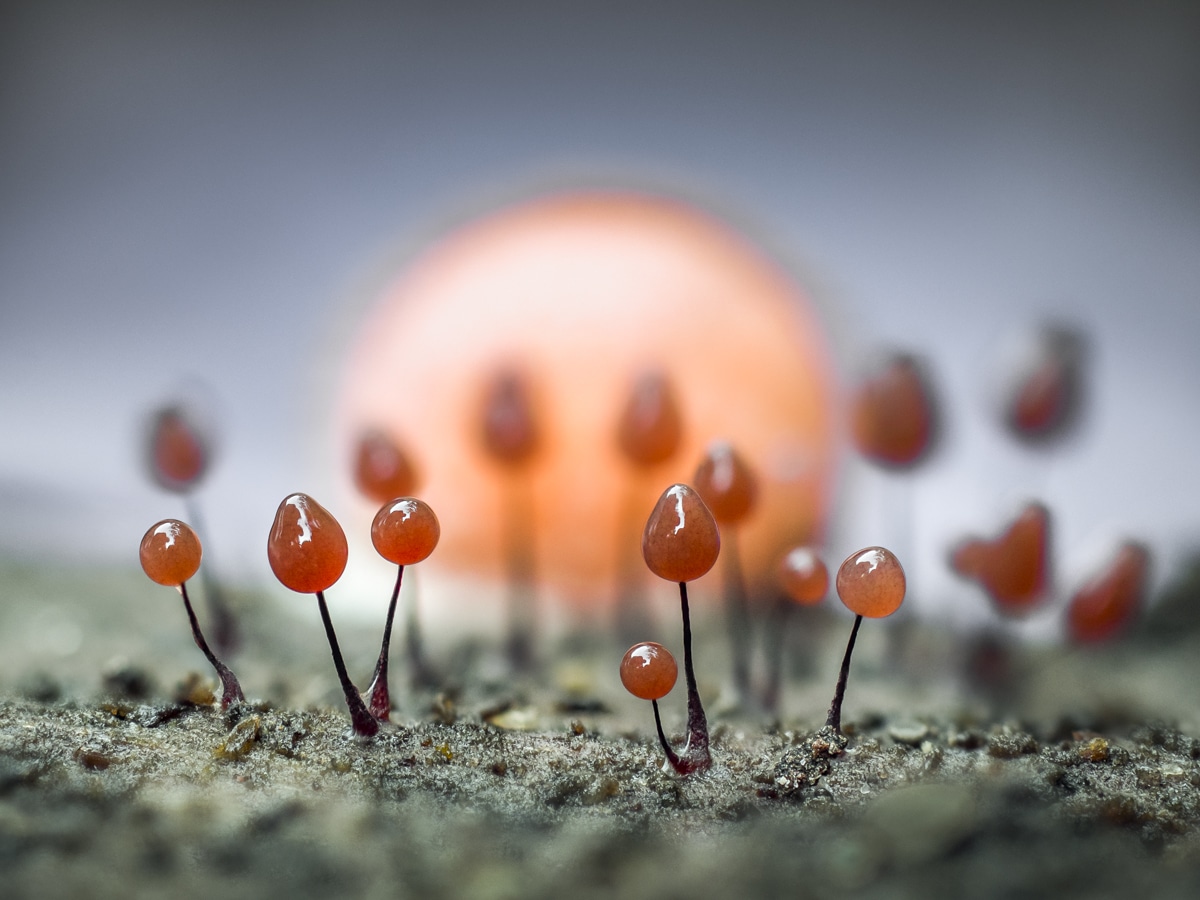
Comatricha nigra with Lycogala epidendrum in the background
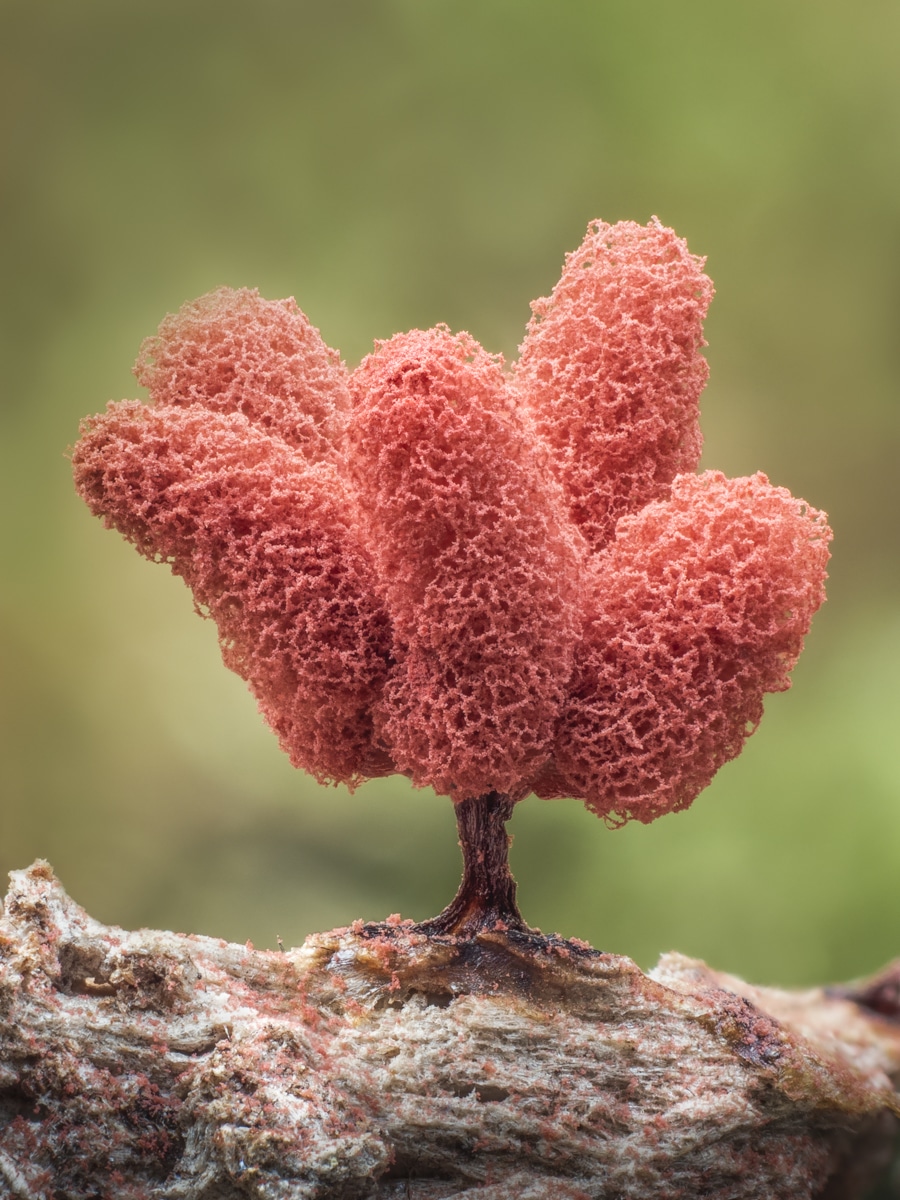
Arcyria denudata
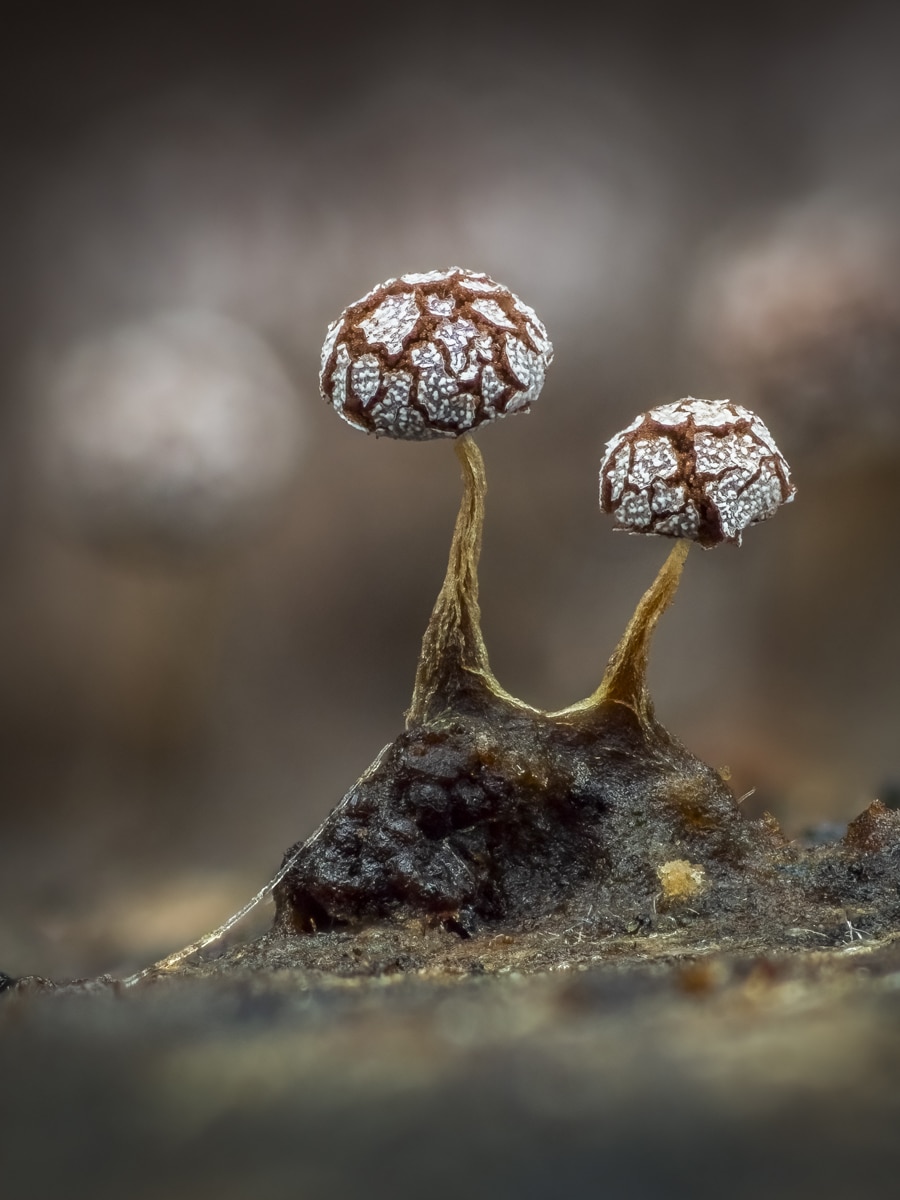
Physarum album
These organisms feed on bacteria, yeast, and fungi and help with the decomposition of vegetation.
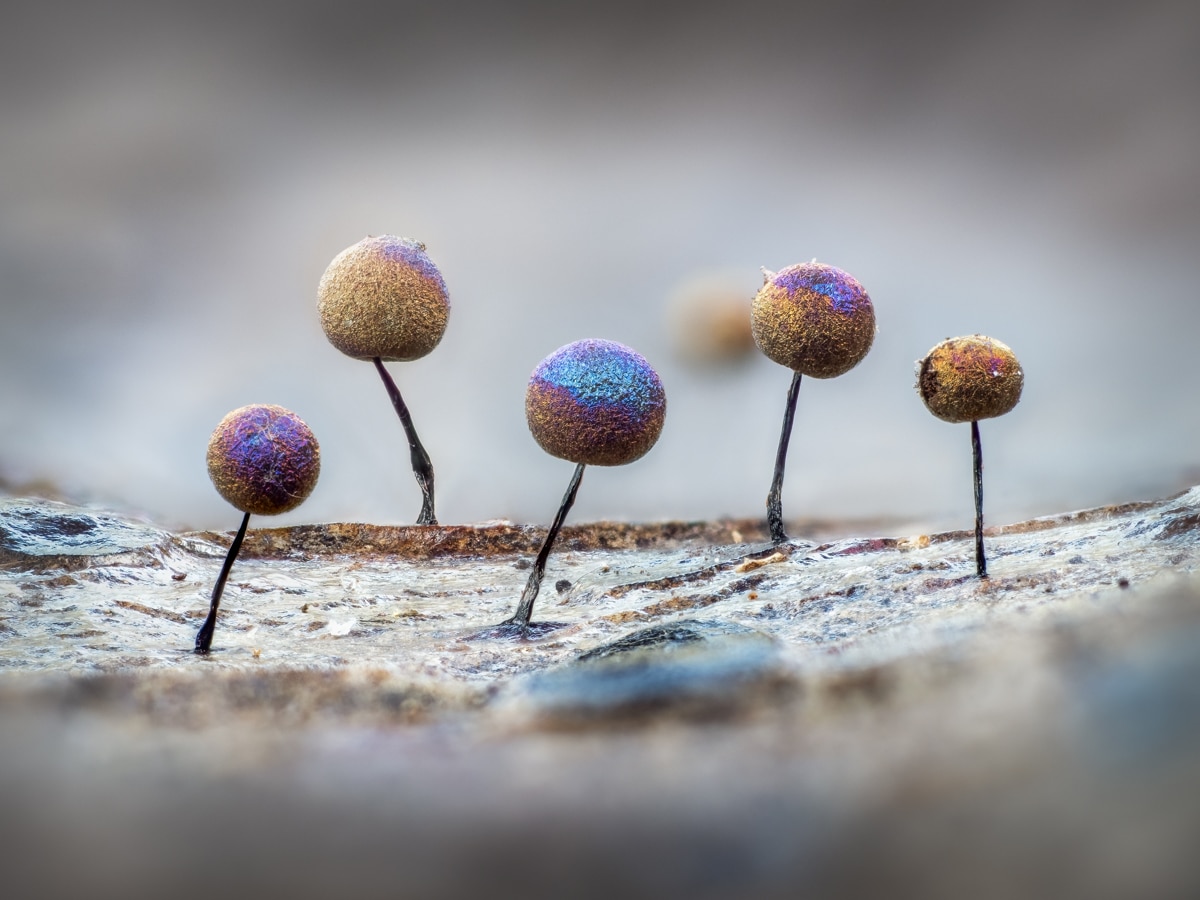
Lamproderma scintillans
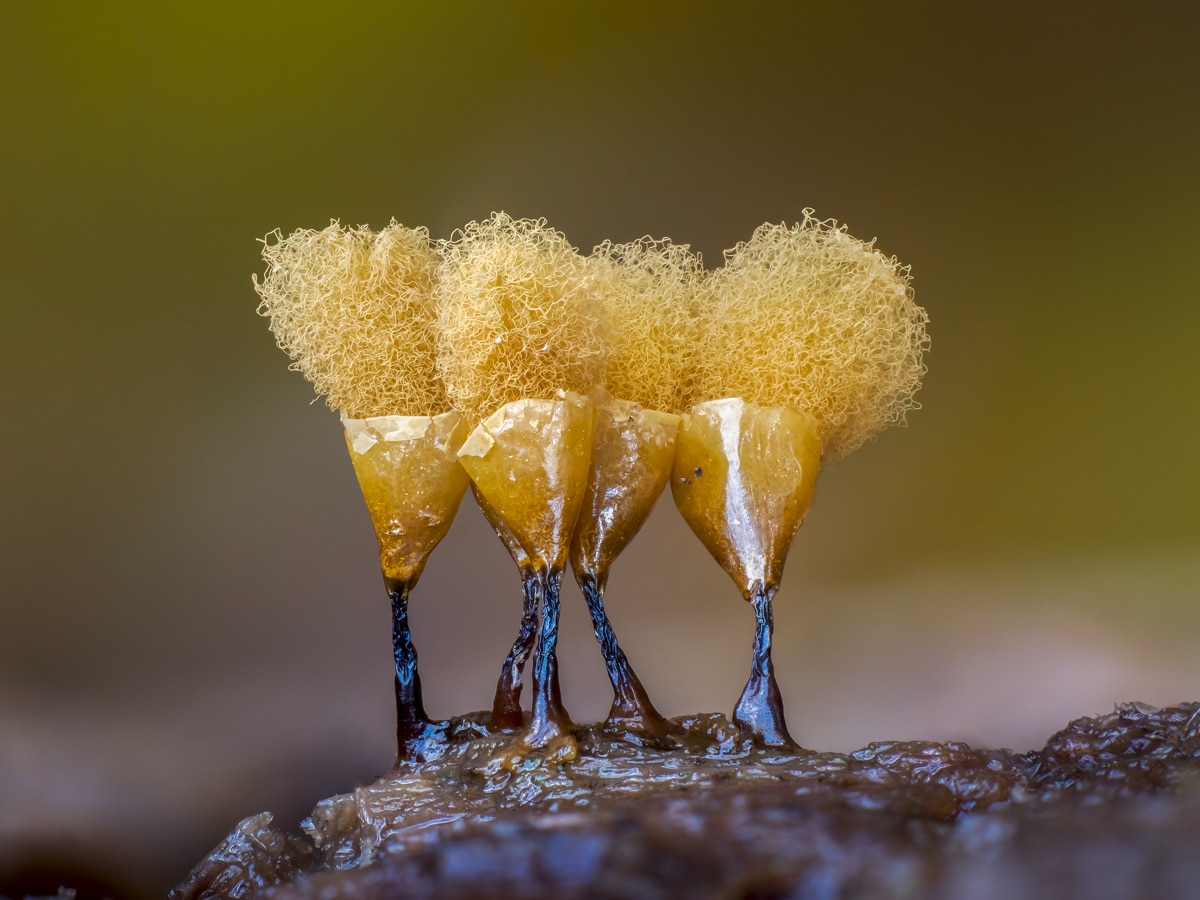
Hemitrichia calyculata

Cribraria cancellata
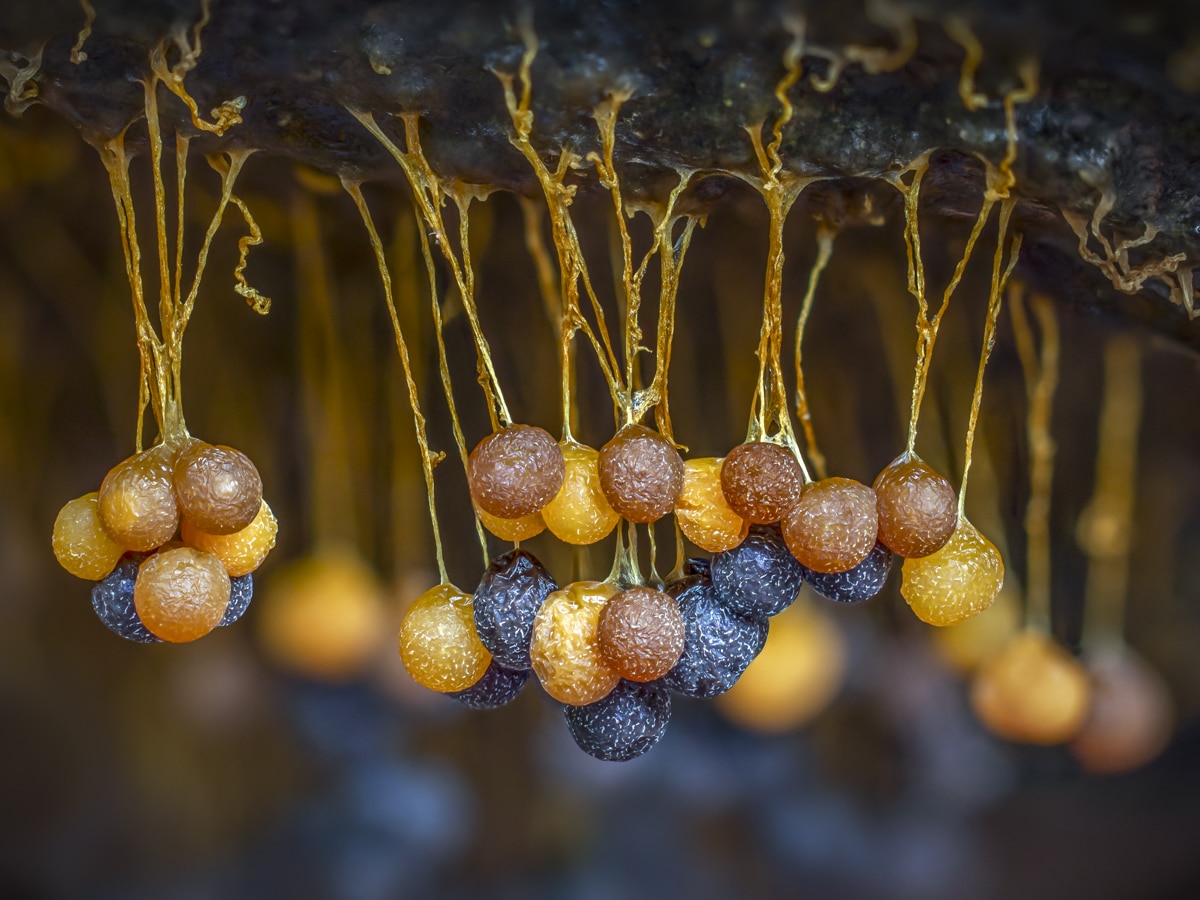
Hanging Fruit Bodies of Badhamia utricularis

Stemonitis on a Larch Twig
